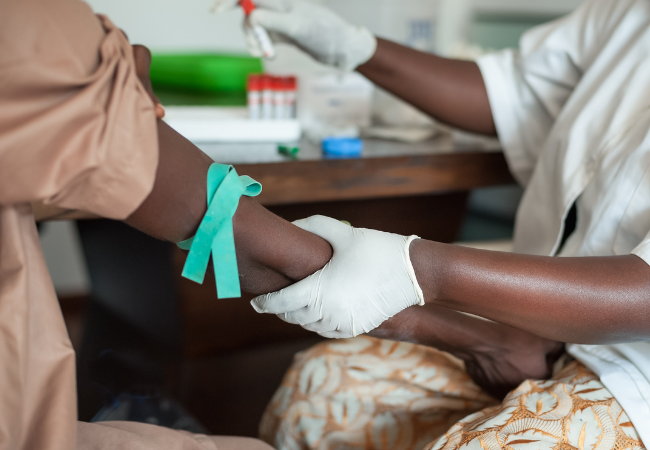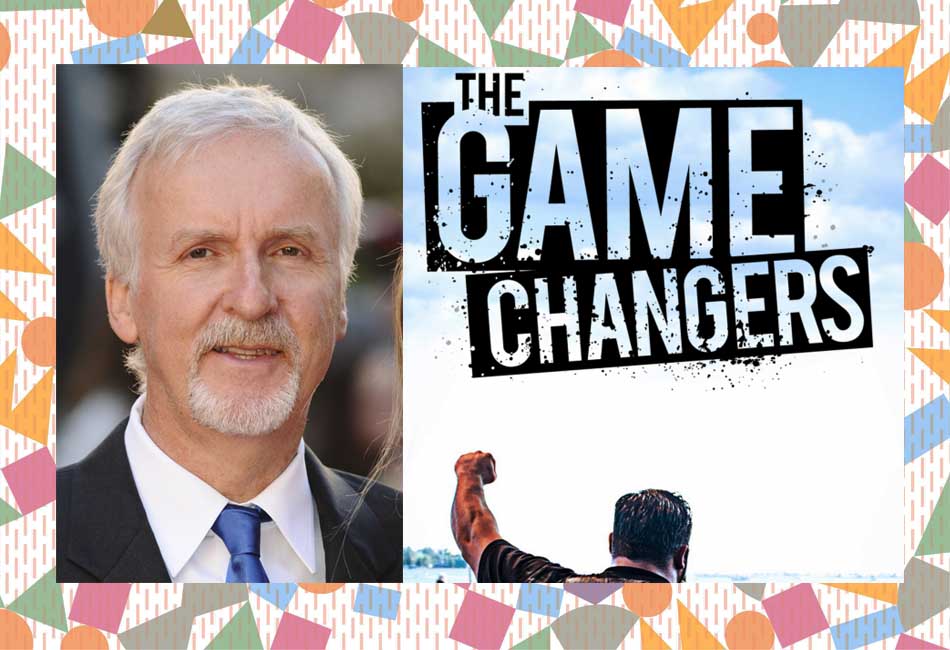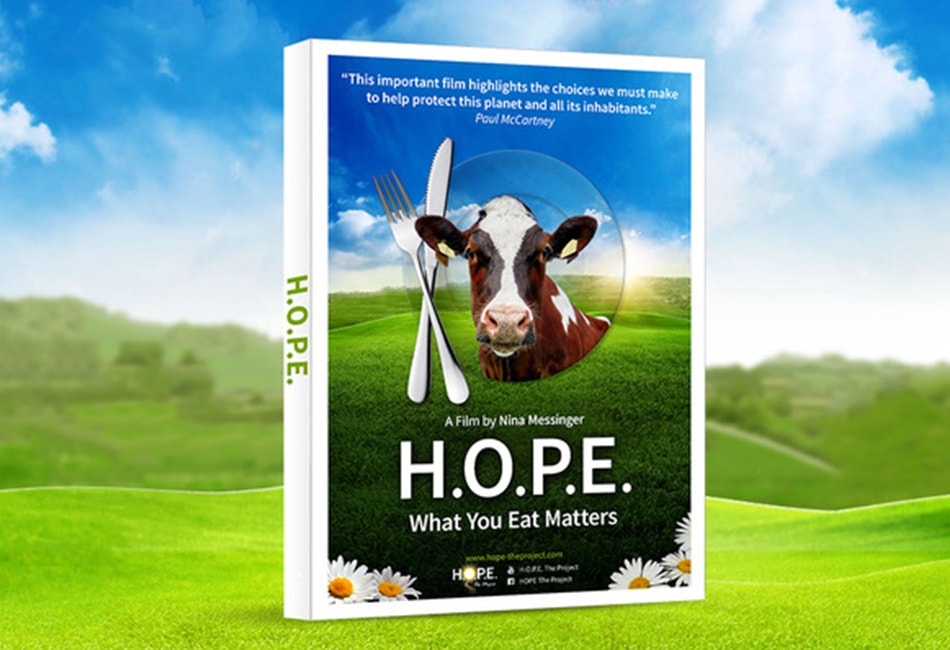Download Free Vegan Starter Kit -
.png)
Seaspiracy On Netflix: Why Plastic Straws Are Not The Problem
2 April 2021
Did you know that world’s oceans are responsible for producing 85% of the oxygen we breathe? They absorb four times the amount of carbon dioxide absorbed by the Amazon rainforest. Life on the planet will not be possible without oceans, and oceans cannot survive without its inhabitants.
The recent Netflix documentary Seaspiracy has made headlines globally with its shocking revelations regarding ocean conservation. Narrated and directed by Ali Tabrizi, the film explores the role of fishing as the cause of marine destruction throughout the world. From plastic pollution to human rights violations, it reveals some important facts which are ignored by most leading ocean conservation organizations.
So what does the documentary uncover?
1. Straws Only Account For 0.03% of Plastic Pollution In Oceans, The Real Threat Is Fishing Nets
While all major ocean conservation institutions emphasize on reducing the amount of single-use plastics, these are not the real problem. The biggest source of plastic pollution in the world's oceans is discarded fishing gear. In fact, 46% of The Great Pacific Garbage Patch in the north Pacific is only polluted by fishing nets.
These fishing nets are a more serious threat to marine life as their very purpose is to kill. They are responsible for the death of 300,000 dolphins, whales and porpoises every year, and 30,000 sharks per hour.
.png)
2. Fishing Is Destroying All Marine Life, Even Turtles
Despite the popular belief that plastic straws are the real threat to turtles, 250,000 turtles are either injured or killed as bycatch due to fishing every year in the U.S. alone.
.png)
Sharks are crucial for the survival of marine life. They are apex predators and ensure population control of other fish species, and the fishing industry kills 50 million sharks as bycatch every year. About 80-99% of shark populations have declined since the 1970s, and fishing has erased 90% of large fish in the oceans.
Moreover, bottom trawling, the most destructive form of commercial fishing, deforests 3.9 billion acres of seafloor every year. This method involves large fishing nets dragging across the seafloor, and is responsible for destroying all other marine life that comes in its way. This has led to the creation of ocean dead zones which contain no oxygen and are covered in algae blooms, which can be toxic.
.png)
A Fishing Trawler
3. Sustainable Fishing Is a Myth
Sustainable fishing refers to commercial fishing which does not deplete marine life by only taking what is necessary. In other words, it means that creatures such as dolphins, turtles, sharks and other species are not harmed during this type of fishing. However, Seaspiracy reveals that this is not the case.
The documentary investigates the ‘Dolphin Safe’ label granted by the Earth Island Institute as well as the Marine Stewardship Council label. After interviewing Mark J Palmer from the Institute, they learn that the label does not provide any guarantee of the fish actually being safe for dolphins.
It is also revealed that these most institutions, apart from Sea Shepherd, work in collaboration with the fishing industry and report biased statistics to gain profits from selling their labels.
4. Human Rights Violations In The Fishing Industry
On a trip to Thailand, Tabrizi meets with a former slave from illegal shrimp and prawn catching boats. The man states that he was forced to work on the boat for ten years, and witnessed the death of a fellow worker who was pushed into the ocean.
Seaspiracy also points out that the fishing industry is given government subsidies amounting to $35 billion each year, and according to the United Nations, this is the same amount needed to solve world hunger.
Another point that the documentary brings to light is that illegal fishing is responsible for destroying the livelihoods of small communities who rely on fishing. West African canoe fishermen have lost out on their livelihood due to commercial boats illegally fishing on their waters. These communities were forced to rely on hunting wild animals in forests for sustenance, which is what led to the start of the Ebola epidemic.

What is the solution?
Since fishing is responsible for this immense damage to the oceans and marine life, cutting it out of our diet is the only way to reduce harm. 2.7 trillion fish are caught every year by the industry, and if this rate continues, then we could be seeing fishless oceans by the year 2048, according to a study.
.png)
Image Courtesy: Seaspiracy
What about nutrition?
The question about nutrition is answered by Dr. Michael Klaper who explains that fish are high in toxins like mercury and metals which can lead to serious health issues. As for omega-3, he reveals that fish don’t produce omega-3, but derive it from consuming algae. A safer alternative to fish oil is to directly consume algae oil or other plant-based sources of Omega-3 such as nuts and seeds.
.png)
Algae Oil
Captain Paul Watson, Founder of Sea Shepherd Conservation Society summarizes the issue succinctly, calling the Earth a “spaceship” with oceans as its “life-support system” - “That life support system is run by a crew of earthlings, and there’s only so many crew members you can kill before the machinery begins to break down, you run out of engineers. And that’s what’s happening, we’re killing off the crew.”
However, Monbiot points out that marine ecosystems recover rapidly if given the chance. So even if we start now, it is possible to preserve life in the oceans and restore its ecological balance.
AUTHOR

trending
Be a Vegan First Informer
Send us buzzworthy news and updates
related
Explore
Contact Us
About Us
Stay Connected
Copyright ⓒ 2017-2023. VEGAN PASSION PRIVATE LIMITED. All Rights reserved.
For more information, please write to hello@veganfirst.com
Registered Office Address: 55, 2nd floor, lane 2, Westend Marg, Saidullajab, Near Saket Metro Station, New Delhi, Gadaipur, New Delhi South West Delhi, DL

2.png)

.png)

.png)
2.png)
2.png)
2.png)


1.png)








